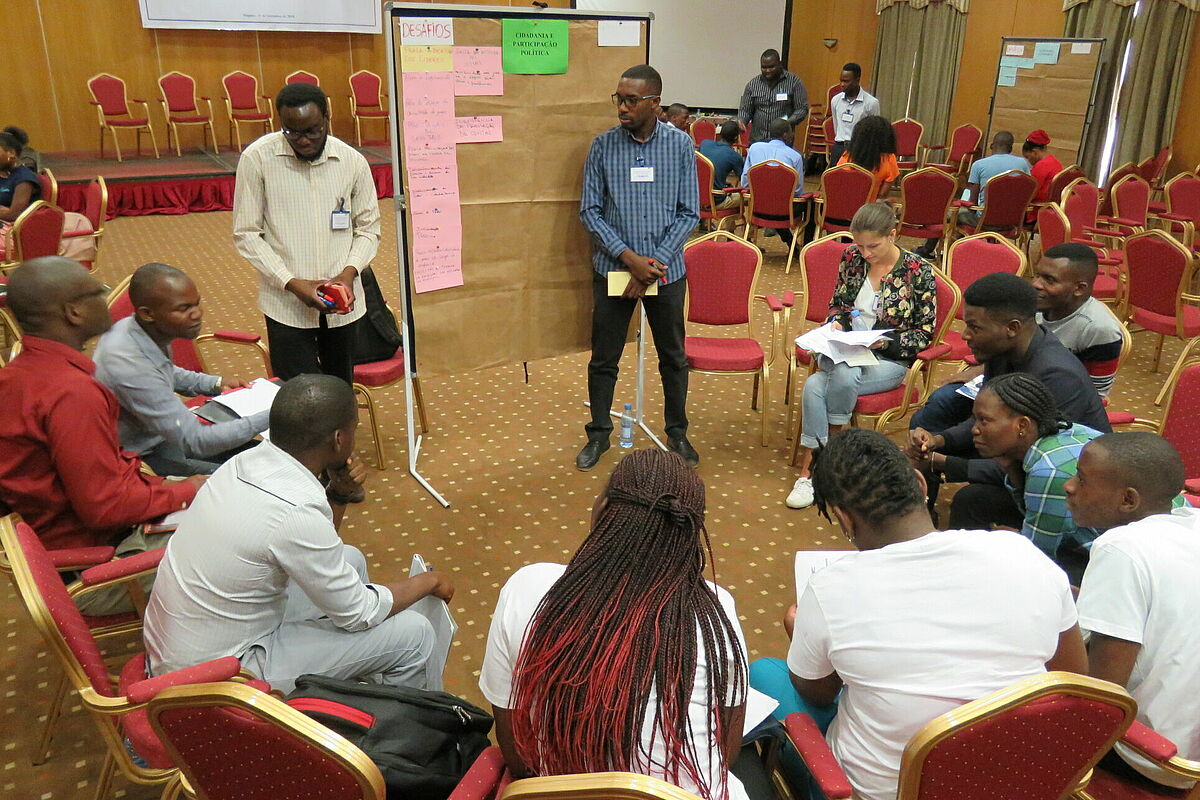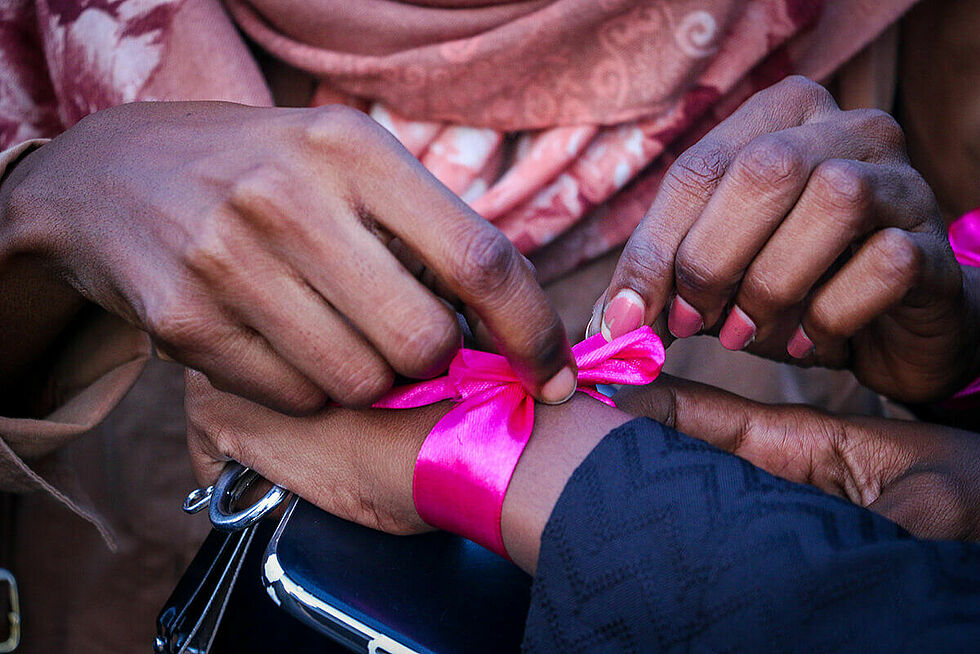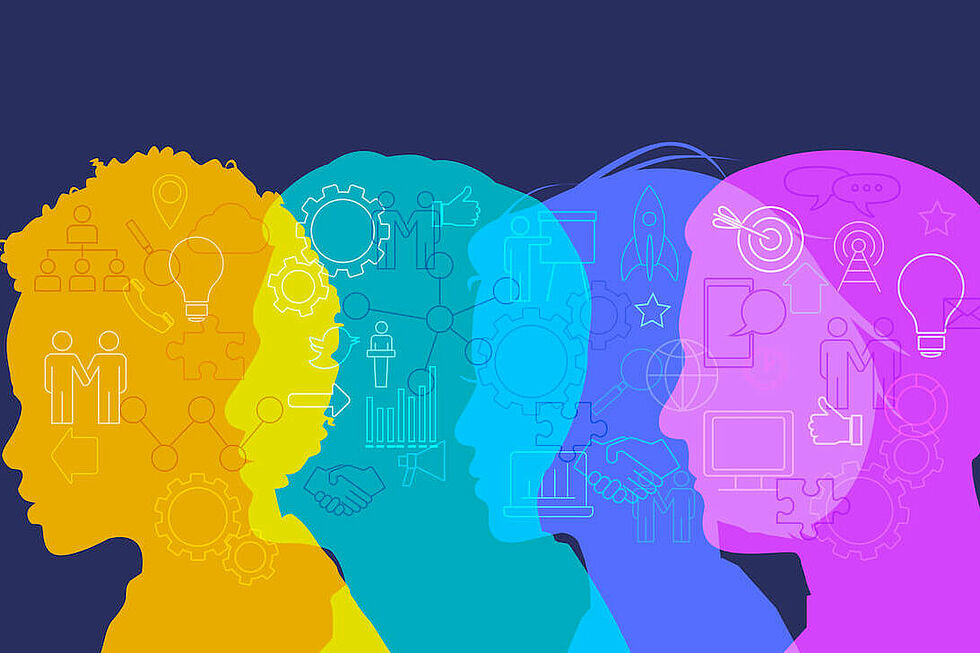Young Mozambicans are learning new ways to gain political traction
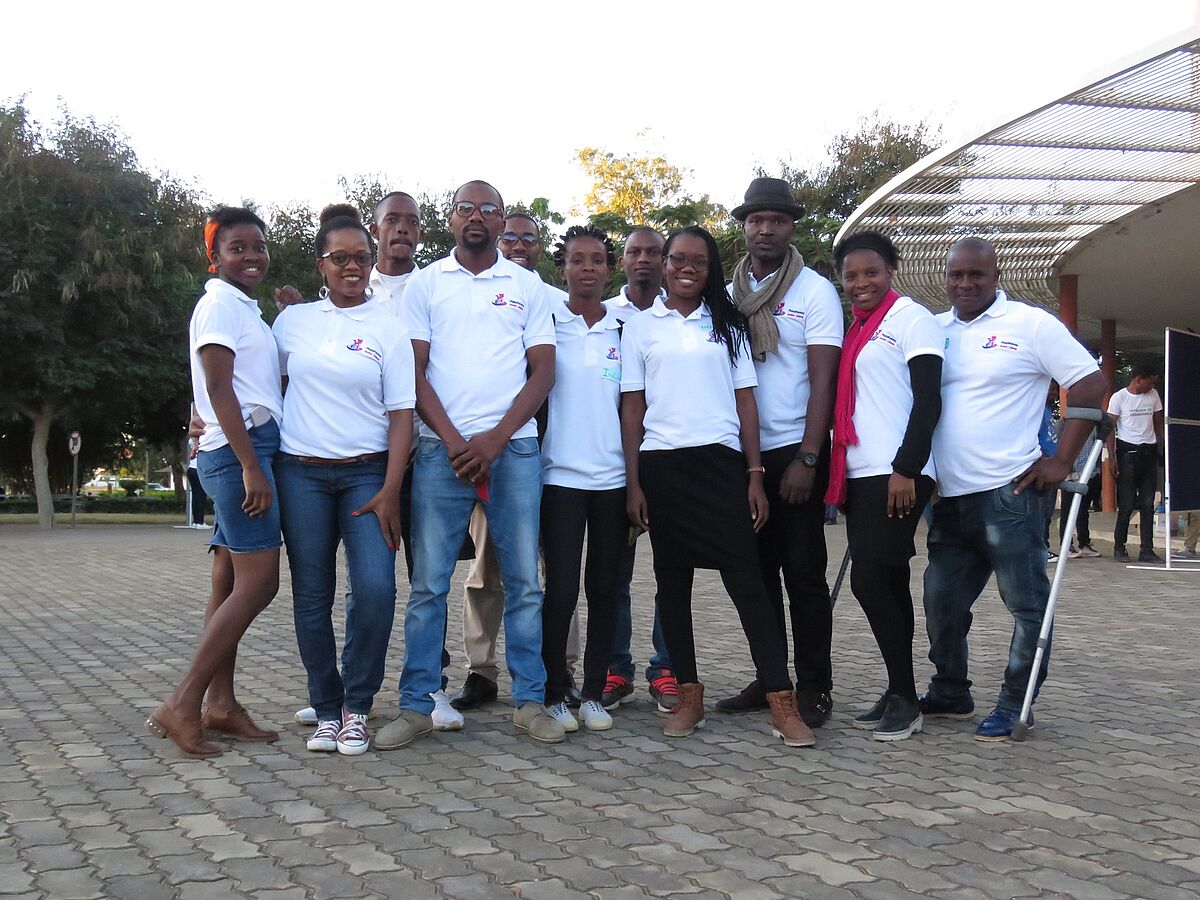
Young Mozambicans suffer from widespread political apathy, due to a distrust of current parties and to a lack of information about their electoral rights—and obligations. Local youth leader Roda Andrade Wilson Mondlane is working to change all that. Her group in Maputo holds Youth and Electoral Citizenship events, which bring young citizens and local politicians face to face with each other as well as with their respective challenges, rights and democratic duties.
Mozambique has a high rate of electoral registration, but low turnout particularly among the young. How do young people feel about voting?
Young people are not too optimistic about elections, for different reasons. Some simply are not interested in politics or are not aware of the importance of their role as voting citizens, due to the lack of education and access to information, which is a big issue in rural areas. Others are frustrated with the political process in general: Politicians appear to engage with young people during campaigns, but once elections are over suddenly pay less attention to their ideas and offer few forums for their participation. This happens all over the world of course, but in Mozambique there is also the feeling that there are no alternatives or any real political competition. The Frelimo party has ruled since independence in 1975, while opposition parties lack concrete political programmes and their popularity is often limited to certain regions. Therefore many young people feel that they have no significant choice in elections and abstain from voting altogether.
How does political engagement among youth differ across the country?
There is definitely an urban-rural divide with regards to political interest and participation. The further you move away from the capital Maputo, where I live, the less information and fewer spaces there are for political debate and participation. This mostly has to do with the access to information: In 2017 only 6.6 per cent of the population had access to Internet, and this was concentrated in the capital. Access to many national and international institutions is also better in Maputo, due to the centralized structure of the political system.
How are you working to get the youth more involved?
One year ago we started a project called Youth and Electoral Citizenship. We organized events that brought together candidates for local government with young citizens, regardless of their political ideology, religion, level of education or occupation, to discuss the common challenges of their age group. The objective was to make local development programmes more responsive to the challenges faced by youth, as well as to strengthen political awareness amongst young people. Participants presented their issues to the candidates and discussed what should be done if they made it into office. We wanted to break with the common idea that young people are generally not interested in politics. What I saw is that the youth is frustrated because they feel their voice is not being heard. We met a lot of young people who have strong opinions and want to influence the public agenda for the better. And the politicians who participated realized that direct active engagement with youth is not a threat but actually helps them come up with better political programmes and gain trust.
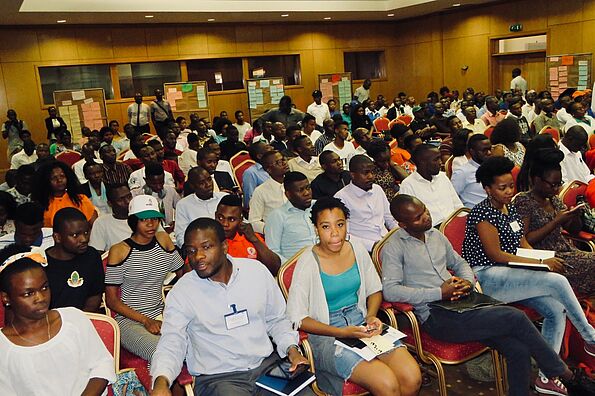
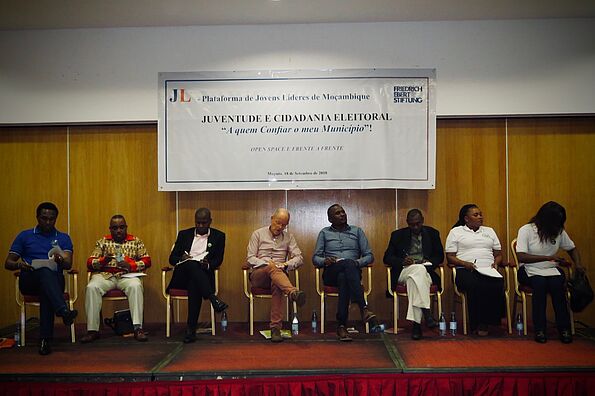
Why is it important for youth in Mozambique to actively shape politics?
At the Young Leaders Platform (Plataforma de Jovens Lideres, the youth group that started the Youth and Electoral Citizenship project) we believe that working towards social justice needs the political participation of all. In Mozambique more than half of the population is under 35 but this age group benefits very little from public policies. To change this young people need to participate more actively in politics. It is necessary to create a different conception of political participation, one that is not limited to voting but is based on daily interactions with public spaces, communities and individuals.
In Mozambique at the moment we are seeing the start of massive gas exploration projects that will bring millions of dollars into the country. Young people, just like other parts of society, need to help guarantee that this money will be invested in basic services like health, education, nutrition and housing.
What kind of support is needed to create more space for the youth voice in politics is created?
For young people to have a powerful voice they must act together, lay aside any differences, and focus on their common interests. Civic education programmes are necessary to educate citizens on their opportunities to participate as well as their obligations to do so.
What is the biggest challenge you have encountered in this work?
The political context in Mozambique is facing increasing limitations. Freedom of expression is being restricted and there is increasing general suspicion towards civil society. When we go into the provinces we are often confronted with mistrust from political actors because they think we might be affiliated with one of their political opponents.
Among political parties there is no understanding of civil society as an independent critical watchdog to help shape public policy. Therefore, we are working to create non-partisan spaces where young people can express themselves freely, discuss social and political issues critically, and come up with their own ideas for change.
What led you personally to get actively involved?
Growing up and living surrounded by these challenges, I realized how important it is to actively participate to overcome them. My dissatisfaction with the current political, economic and social situation motivates me to fight for change. I have come to the conclusion that my voice alone might not have that much weight, but united with other young people, facing the same challenges and also looking for change, we have a powerful voice. Above all I am a political person that believes in change.
###
The Plataforma de Jovens Lideres was founded by alumni of the FES-supported Young Leader Programme in Mozambique. Find out more by visiting their Facebook fan page. For more information on the youth programme and the work by FES in Mozambique visit the country office website and follow FES Mozambique on Facebook and Twitter.
